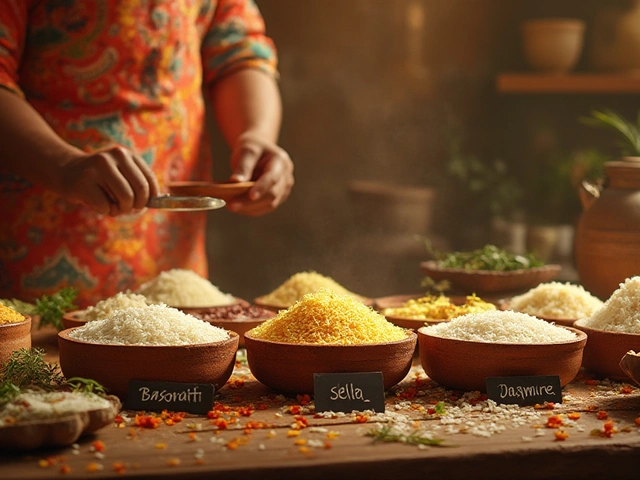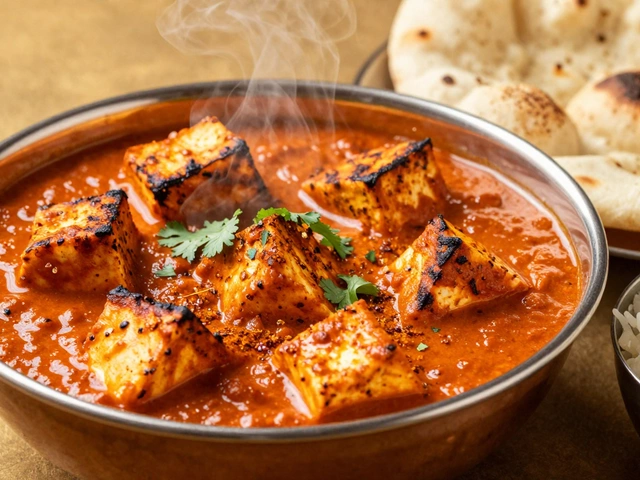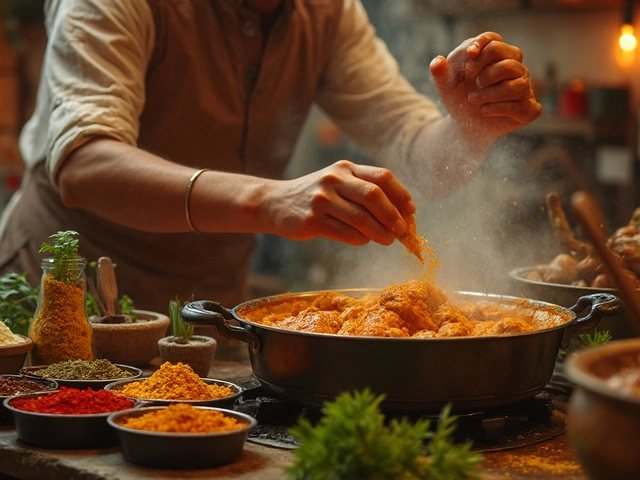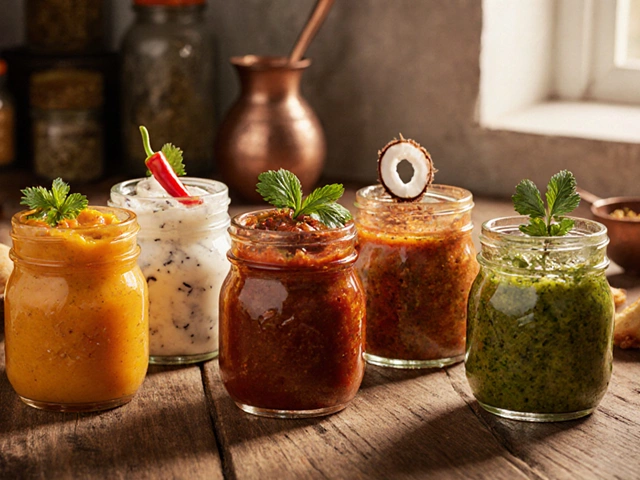Ever chomped down on a piece of chicken that felt like chewing on a gym mat? You’re not alone—nobody dreams of serving up a bland, dry bird. The truth is, what you soak chicken in before cooking can completely change its destiny, taking it from rubbery misery to juicy, fork-tender delight. Food scientists have actually spent years obsessing over this. The right soak is the difference between chicken that makes your kids ask for seconds and chicken that turns into leftovers nobody wants.
Why Soaking Chicken Changes Everything
Let’s clear something up: soaking isn’t just a “grandma’s tip” or random YouTube hack. It’s real food chemistry at work. When you dunk chicken in a marinade or brine, you’re inviting salt, acid, enzymes, or dairy to get into the muscle fibers. Salt from a brine, for example, actually breaks down protein strands, loosening them and letting moisture in. That’s why brined chicken stays juicy, even after grilling or roasting. Acids like vinegar, lemon juice, or yogurt work differently—they can tenderize but also add brightness.
This boils down to science called osmosis. Salt and other ingredients pull water into chicken cells. That moisture can’t escape easily once heat hits the meat. And flavor? It gets pulled inside, not just left on the outside. Pretty clever, right? Baking, frying, or grilling, that soaked chicken now stands a real chance of staying tender and tasty.
But remember, there are limits. Too much acid for too long and your chicken turns mushy. Think ceviche, except chalky and weird in the oven. So time matters; ingredients matter. And for juicy chicken, the soak you pick should match your cooking plans.
The Magic of Brines: Salt Water’s Hidden Power
A classic brine is just salty water, but don’t underestimate it. When you dissolve about 60g of salt into a liter of water, you create a solution that chicken loves. Submerge your cuts—breasts, thighs, a whole bird—and watch magic happen over the course of several hours. It works because the salty bath penetrates the meat. Meat scientists at the University of Wisconsin showed poultry can absorb up to 10% of its weight in extra moisture during soaking. So the chicken goes into the oven juicier than it started.
Want next-level flavor? Go beyond salt! Try adding brown sugar (for caramel notes), garlic, peppercorns, bay leaves, or citrus peels. If you’re making roast chicken Sunday dinner or just meal prepping for the week, brines never disappoint. For everyday dinner, a simple brine can be done in as little as an hour, though four hours or even overnight will bring out the biggest difference in texture and taste.
Here’s a super-handy table to show how soaking time changes things:
| Chicken Cut | Minimum Brine Time | Best Brine Time | Bonus Add-Ins |
|---|---|---|---|
| Breasts | 30 min | 1-2 hrs | Lemon zest, honey |
| Thighs | 1 hr | 2-4 hrs | Rosemary, garlic |
| Whole Chicken | 2 hrs | 8-12 hrs | Bay leaves, peppercorns |
A tip from my own kitchen chaos: always rinse chicken after brining, or you’ll end up with salty skin and drippings. And keep it in the fridge—that salty bath doesn’t protect you from food safety slip-ups.

Marinades: The Flavor and Tenderness Combo
Craving bold flavor and soft texture? That’s where marinades come in. A basic marinade needs three things: acid, fat, seasonings. The acid (lemon juice, vinegar, buttermilk, even yogurt) helps break down proteins a bit—making the outside of the chicken softer. The fat (like olive oil or even coconut milk) helps those flavors spread evenly and gives a richer mouthfeel. Add your own twist with garlic, ginger, chili, or herbs, and every soak brings new possibilities.
Here’s where it gets interesting: not all marinades tenderize equally. For example, studies out of Stellenbosch University found that chicken soaked in yogurt or buttermilk was noticeably juicier and more tender than those marinated only in citrus juice. Dairy-based marinades contain natural enzymes that boost tenderness. It's a tried-and-true secret in many Cape Malay and Indian recipes that my own family swears by—especially for fried chicken or juicy oven bakes. My kids, Jasper and Leona, never leave a crumb when I use yogurt or buttermilk for crispy chicken.
Don’t marinate forever—acid needs time to work, but too much and your chicken turns a bit stringy. Fancy chef cookbooks might demand 24 hours, but for most marinades, 30 minutes up to 4 hours does the trick. For buttermilk or yogurt, you can go up to 8 hours safely and the result just gets better.
If you need a foolproof formula, here’s a basic math for a great chicken marinade:
- 1 part acid (like lemon juice, vinegar, yogurt)
- 2 parts oil (olive, canola, coconut)
- 1 tablespoon salt for every 4 pieces of chicken
- Herbs, spices, sweetener to taste
Mix it all up, pour into a sealable bag with your chicken, and massage gently. Pop it in the fridge and let those flavors get to work.
Enzyme-Based Soaks: Pineapple, Papaya, and More
Acids and salts are great, but if you want to try something that feels almost magical, reach for enzyme-rich ingredients like pineapple, papaya, or kiwi. These fruits contain natural enzymes (bromelain in pineapple, papain in papaya, actinidin in kiwi) that break down protein at a molecular level. These soaks work faster than anything else—sometimes as little as 10-20 minutes is enough to super-tenderize chicken, especially if you’re working with thicker cuts.
But this is where you need to be careful. Imagine accidentally turning a perfectly normal chicken breast into chicken slime—because that’s what happens if you leave it soaking too long. The enzymes don’t just stop at tenderizing; they basically digest the meat until there’s no structure left. So always set a timer, especially when using fresh pineapple juice or papaya puree.
Enzyme-based soaks are a favorite in traditional South African barbecue (braai) recipes. They give chicken a slightly sweet, tropical note. If you’re using these, balance them out with salt, spices, and a bit of oil so the flavors feel rounded, not candy-sweet.
If you’re feeling adventurous, try this combo for kebabs: blend fresh pineapple, a little garlic, chili, and a splash of soy sauce, then soak your chicken cubes for just 15 minutes before grilling. You’ll notice the difference immediately—bite-sized pieces that practically melt in your mouth.

Common Mistakes and Top Tips for Tender Chicken
Here’s where kitchen dreams often get dashed on the rocks of reality. Even with the perfect soak, simple mistakes can sabotage all your efforts. First, don’t overdo the acid—leaving chicken in pure lemon juice for hours turns it weirdly tough, not soft. Stick to recommended times and ratios.
Always marinate or brine in glass, stainless steel, or food-grade plastic. Metal bowls with acid will taste metallic, and old plastic can absorb odors or stain. Always keep soaked chicken cold—the fridge is your friend, unless food poisoning is your thing!
Avoid stacking chicken pieces too tightly in the soaking liquid; each piece wants room for the soak to work properly. For better penetration, score larger pieces with a knife. This lets brine or marinade sink deeply, especially for bone-in cuts or whole birds.
Planning to bake or fry? Pat your chicken dry before cooking, especially if you want crisp skin or coating. Too much liquid makes steaming instead of browning. And if you want that flavor on both the inside and the outside, baste your chicken with leftover marinade during cooking—but only if you boil it first, otherwise you’re reusing raw chicken juices.
And hey, don’t throw out the soaking liquid right away. If you’ve brined a whole chicken, the spices and aromatics in that salt water make an amazing base for gravy or soup stock—just bring it to a solid boil before using.
Most importantly, remember family favorites take experimentation. My Jasper loves a buttermilk soak with loads of cracked black pepper, while Leona’s crazy for mango-pineapple marinades. Try a few combos to see what works for your crew. What counts at the end of the day isn’t following rules to the letter, but serving chicken so soft and flavorful that everyone asks for thirds.











